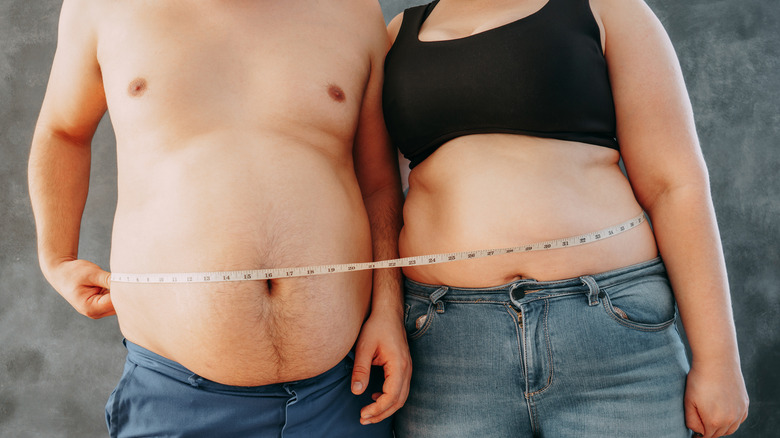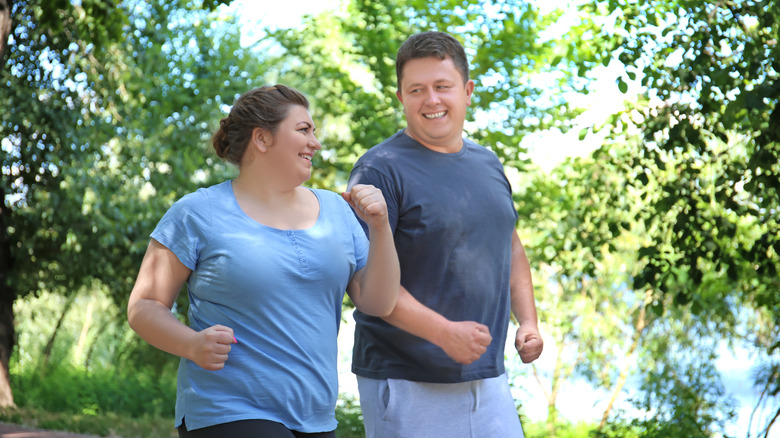How Belly Fat Affects Men And Women Differently
Among the many differences in male and female physiology, one has puzzled many of us for ages: why do women and men tend to store fat in different places, and how do those fat deposits affect health — especially in the case of belly fat, which affects both sexes at different stages of life?
According to Medical News Today, men tend to store fat mainly in the abdominal area (hello, apple shape!), and women tend to pack it more around their hips, thighs, and butts (hello, pears!). After 50, both sexes tend to have a harder time keeping the weight off, mostly due to changes in hormone levels. In men, it results from lowering testosterone levels, and post-menopausal women can experience lower estrogen levels (via Livestrong).
Obesity medicine specialist Dr. W. Scott Butsch told Cleveland Clinic, "Men are more likely to have more belly fat (or visceral fat) than premenopausal women. But after menopause, women begin to gain more weight in their abdominal area."
In both cases, the extra inches around the midsection increase health risks and reduce fertility, especially when enough fat results in obesity, per Medical News Today.
Extra belly fat carries health risks for both women and men
Djurdjica Coss, an associate professor of biomedical sciences at the University of California, Riverside, School of Medicine, who studied the health effects of obesity in rodents, explained to Medical News Today that "Obese men have lower testosterone levels, contributing to low libido, low energy, and reduced muscle strength. We see this in mice, too; obese male mice showed nearly 50 percent decreases in testosterone and sperm number." As for women, she adds, "Obese women have difficulty with their menstrual cycles. They don't ovulate."
Aside from decreased fertility, storing extra fat — also known as visceral fat — around the middle is associated with an increased risk of metabolic syndrome and cardiovascular disease. For women, it also increases the risk of breast cancer and the need for gallbladder surgery (via Harvard Health Publishing).
And while men tend to have an easier time trimming those extra inches due to their greater ratio of lean muscle mass (sorry, ladies!), we can all benefit greatly from a combination of strength training and cardio exercise, according to Livestrong. Registered dietician Jenny Champion suggests, "As for exercise, it doesn't have to be intense or long; even a walk around the neighborhood every day adds up."


